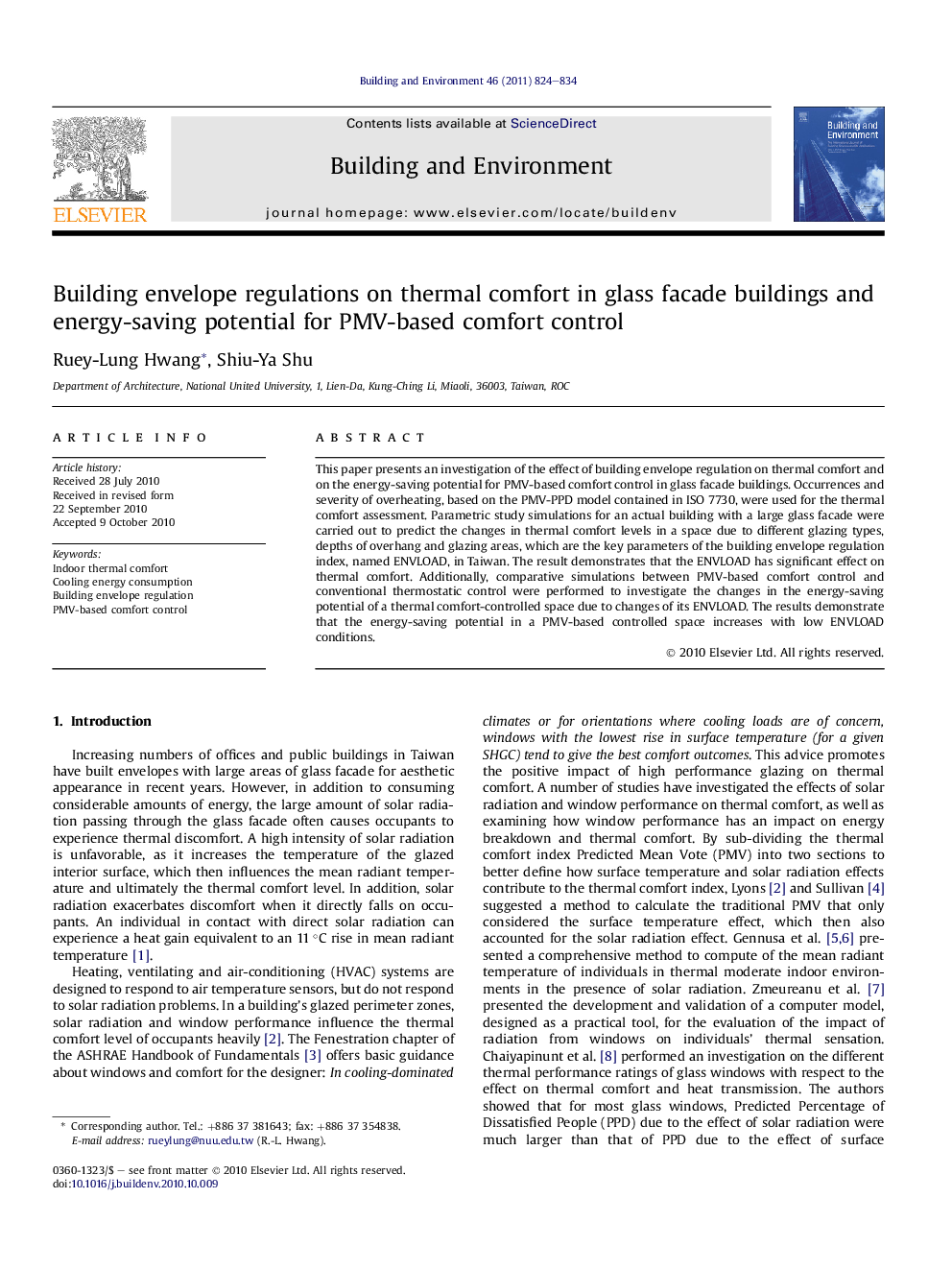| Article ID | Journal | Published Year | Pages | File Type |
|---|---|---|---|---|
| 248842 | Building and Environment | 2011 | 11 Pages |
This paper presents an investigation of the effect of building envelope regulation on thermal comfort and on the energy-saving potential for PMV-based comfort control in glass facade buildings. Occurrences and severity of overheating, based on the PMV-PPD model contained in ISO 7730, were used for the thermal comfort assessment. Parametric study simulations for an actual building with a large glass facade were carried out to predict the changes in thermal comfort levels in a space due to different glazing types, depths of overhang and glazing areas, which are the key parameters of the building envelope regulation index, named ENVLOAD, in Taiwan. The result demonstrates that the ENVLOAD has significant effect on thermal comfort. Additionally, comparative simulations between PMV-based comfort control and conventional thermostatic control were performed to investigate the changes in the energy-saving potential of a thermal comfort-controlled space due to changes of its ENVLOAD. The results demonstrate that the energy-saving potential in a PMV-based controlled space increases with low ENVLOAD conditions.
